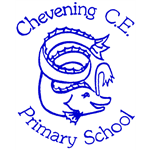How we teach Reading
At Chevening we want our children to be lifelong readers for pleasure and as such work hard to create a balance between teaching children how to read and also finding opportunities to share books so that children can experience the magic between the pages. We teach reading through a variety of approaches which are matched to the age and ability of the children in each year group.
A brief overview
When children first join us in Year R, and during their time in KS1, they are taught synthetic phonics through the Essential Letters and Sounds programme. It teaches children to read by identifying the phonemes (smallest unit of sound) and graphemes (written version of the sound) within words and using these to read words. The progression in learning can be found here. This is in addition to small group guided reading sessions to allow for the development of comprehension skills. We also use quality texts as the basis for much of our work in English across the school. Where possible, teachers strive to read with children on an individual basis and we are lucky to be supported by our Reading Angel parent volunteers with this. All classes find time in their school day to read for pleasure – often finishing the day with a class reader.
Phonics
We have prepared a video to introduce Essential Letters and Sounds (our approach to Phonics). This video also gives some handy tips to support your child with reading and writing at home.
In addition, please follow the link here to the ELS website where you will find videos to support the correct pronunciation of different sounds.
Essential Letters and Sounds website
For a more detailed look at our approach to Phonics, please read our policy which can be found at the bottom of this page.
Sharing books at home
“Children are made readers on the laps of their parents” – Emilie Buchwald
Sharing books at home is a wonderful activity to do; real quality time spent between a child and their parent. It is also vitally important to helping children learn to read. If you can spend time enjoying a book together, not simply decoding words but discussing the text, checking your child’s understanding, spotting the really good vocabulary or how the author brings the characters to life and engages the reader, it will enhance your child’s love of reading and improve their writing too.
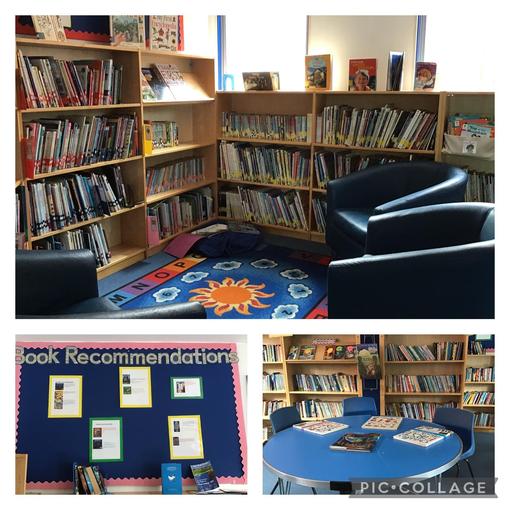
Our children have access to attractive and appealing books from their own class and the school library. They take ownership of choosing their own reading book to share and read with their parents at home. In KS1, the children are involved in choosing a book from a selection of decodable reading books (which are in-line with the phonemes they have learnt so far) and are encouraged to re-read this text across the week to develop their skills in fluency and expression. In KS2, the children are able to choose from their class book corners. Through choosing their own home reading book, the children are able to choose books which are of personal interest and which they are therefore keen to read. Where necessary, school staff will guide the children towards suitable books to give them an appropriate level of challenge or sometimes to encourage them to broaden their selections and try something new.
Our books in classrooms and in the library are updated at regular intervals to ensure that the children have access to literature which has been published recently and has been written by a wide range of authors. When purchasing new books, we look for books which celebrate diversity of culture, race and ability as well as ensuring that we have books which showcase different types of relationship and tackle issues that our children may face at some point. Our children, and staff, are encouraged to suggest good books to their friends and classmates so that we are sharing that developing love of reading.
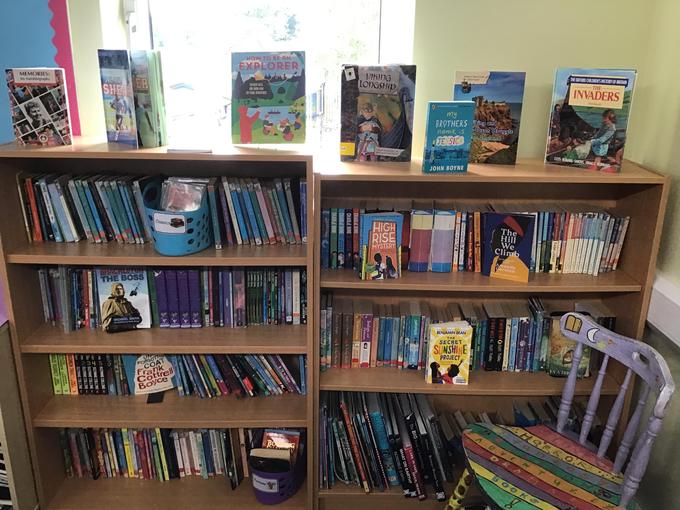
Banded books in KS1
Book Banding is designed to provide children with the enjoyment of choosing books, whilst being accessible to their individual reading ability. Our coloured level books are introduced to the children once they have learnt all their Phase 2-5 sounds so they can experience the joy of reading rather than focusing on purely decoding. When a child is learning to read, it is important that they have access to lots of different types of books (fiction and non‐fiction) and a wide vocabulary whilst still being at the appropriate reading level.
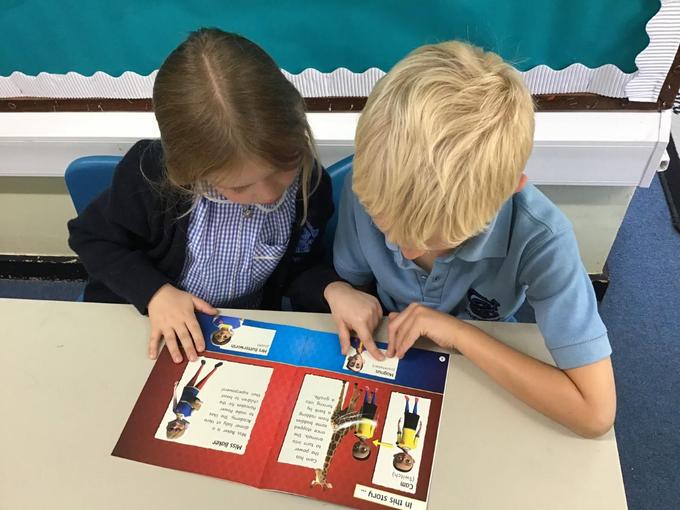
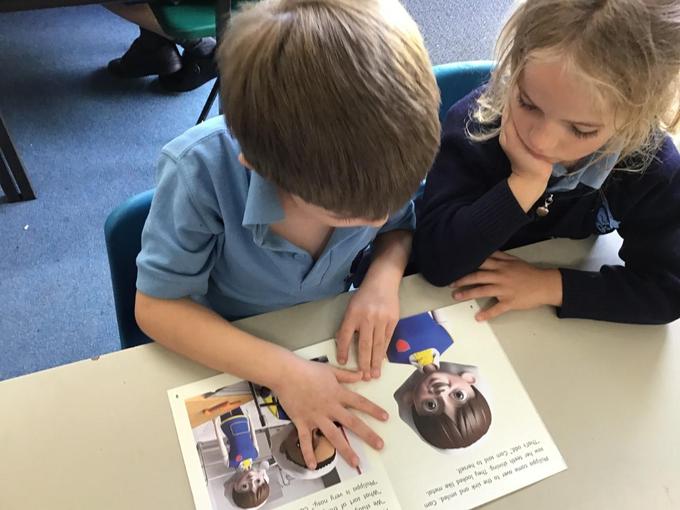
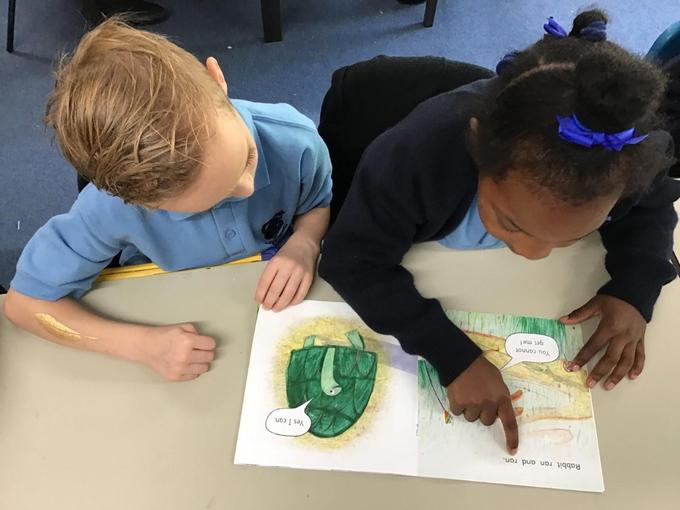
Homework
Reading is a really important element of our homework and children are expected to read regularly at home (ideally daily). We hope that over time, our children are not reading because it is their homework, but because they want to.
Guided Reading
Through guided reading sessions the children are taught strategies for word recognition; for example using the context, pictures, sight vocabulary and phonic knowledge to read words. We use group discussion and carefully planned questioning to deepen the children’s understanding of the text. In Key Stage 2, the children are given time to go beyond decoding and to consider a wide range of more complex aspects of a text; character and plot development, the structure of the text and the meaning and quality of the vocabulary used (including figurative language). They learn how to evaluate texts and to use the text as evidence to support their judgements.
English lessons
Our English curriculum is taught through the use of high quality texts selected as part of the CLPE Power of Reading programme. This allows for a wealth of opportunities for the children to get really invested in a book and also to develop their reading skills alongside their writing.
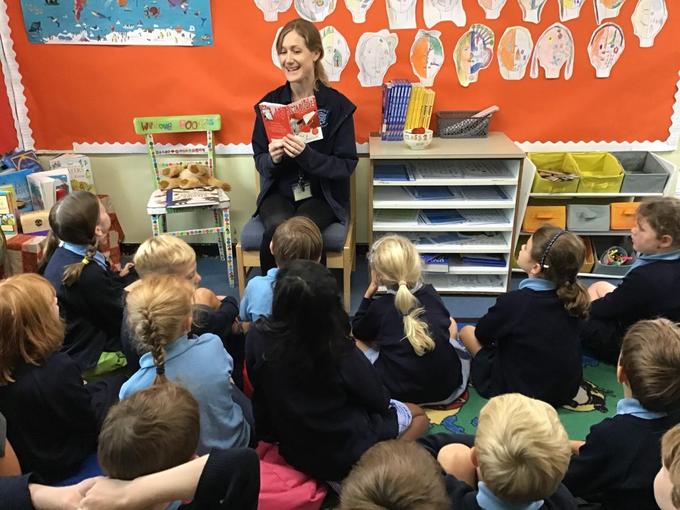
Extra help for those who need it
Some of our children benefit from reading individually to an adult more often than others, or having other support for a period of time to help their progress in reading. We have a number of different approaches to this, including phonic interventions and comprehension based activities which will be put in place when a need is identified by the class teacher.
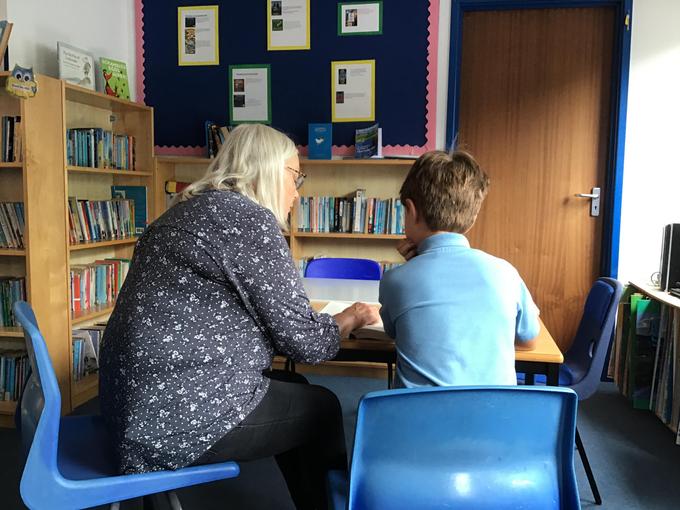
Recommended reading lists
We all have times when we could do with a book recommendation! The lists below have been generated using lists from the Centre of Literacy for Primary Education which have been adapted with our children in mind.
Reading Lists
We believe that first and foremost, children should read what they enjoy and feel passionate about. However, we also recognise that sometimes it can be tricky to know where to start with choosing a book amongst the thousands on offer.
Books for Topics is a brilliant website full of up-to-date recommendations sorted by topic and age. We would recommend having a look here if you are in need of a suggestion as to what to read next.
